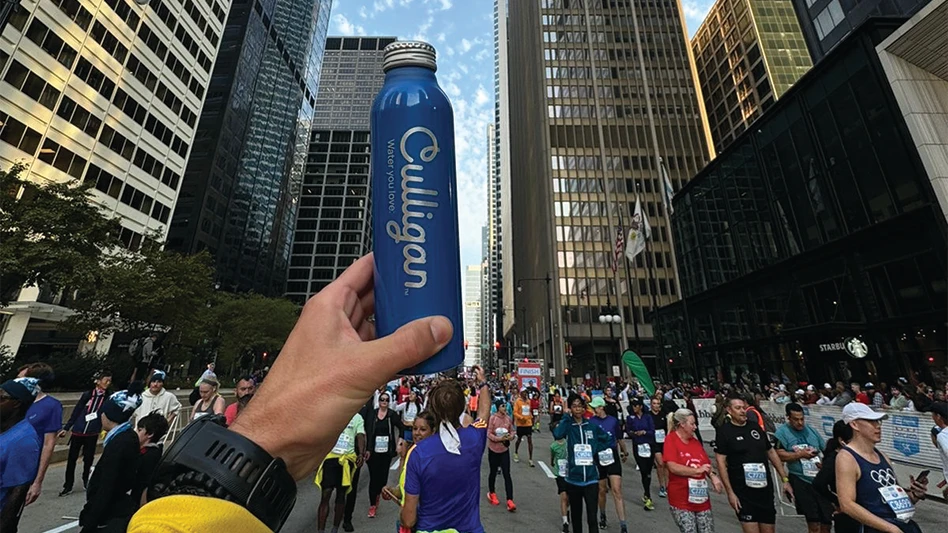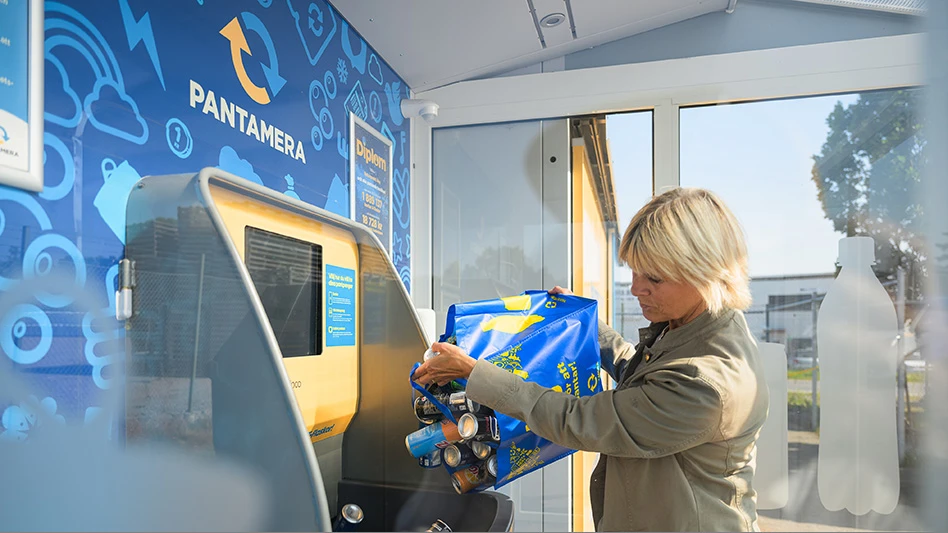PolyWaste Intellectual Property Pty. Ltd., Kowloon, Hong Kong, has received a patent for a system that can recycle all types of thermoplastics, including mixed plastics, using frictional heat.
The system consists of a rotating frictional heater, a chamber that holds the plastic, a device that pushes the plastic against the heater and conduits through which the molten plastic flows out of the system.
According to the patent, the invention overcomes several problems associated with existing systems, which typically are limited in the types of plastics they can process. The energy-efficient system can handle film and other forms of plastic contaminated with food and other foreign materials.
The frictional heater melts the plastic so it can flow through the conduits. As different types of plastic travel together through the conduit, they are thoroughly mixed. Contaminants, such as paper, foil and dirt, are fragmented by the shear forces of the rotating and flowing viscous molten plastic, causing them to finely disperse throughout the mixture.
The molten plastic leaving the PolyWaste system can be pelletized or fed directly into an injection molding machine or an extruder.
“Appropriate blending, mixing and melting parameters [allow] the use of many plastics and plastic composites that otherwise could not be effectively recycled, and the range of plastic mixes that comprise possible input and output variants is endless,” the patent states. For example, the system would be appropriate for making blends of different types of polyethylene for end products such as drainage pipe.
Patent 10,052,795; issued Aug. 21, 2018
Contamination removal. Propelling shredded material through a grater-type device can help remove impurities from flakes, according to a patent filed by CVP Clean Value Plastics GmbH, Hamburg, Germany.
CVP’s invention combines two pipe-shaped devices, each with cleaning ribs that rub against flakes to scrape off contaminants. The pipe-shaped devices are placed one within the other, with the cleaning surfaces facing each other.

The cleaning method avoids subjecting flakes to undue mechanical stress from compression or deformation, preventing fines. It flattens the flakes and gives them a matte surface, improving the effectiveness of subsequent optical sorting. The method requires no chemicals.
“The surface of the cleaning ribs generates the necessary friction to clean the shredded plastic,” according to the patent.
Patent 10,058,898; issued Aug. 28, 2018
Color removal. Radco Infusion Technologies Inc., Toledo, Ohio, has patented a method for removing colorant from recycled thermoplastics, particularly polyethylene terephthalate (PET), increasing their value and suitability for use in clear end products.
Currently, the use of colorant in products such as PET beverage bottles limits the plastic’s future use in clear or noncolored applications. Other methods of removing colorant, such as caustic washes, leave some color behind, the patent states.
In the process, the thermo- plastic first is mixed with a solution of water, diethylene glycol and 2-butoxyethanol. It then is heated to a temperature that does not degrade the plastic’s crystalline structure. In some aspects of the invention, the mixture also is irradiated with ultraviolet light. In less than 10 minutes, the color is removed from the plastic.
Patent 10,047,209; issued Aug. 14, 2018
Pyrolysis. Blizzard Energy Inc., Great Bend, Kansas, has invented a system for processing carbon-containing materials, such as plastics, under heat and pressure to recover valuable hydrocarbon-containing products, such as synthesis gas and pyrolysis oil.
The pyrolysis system features a crucible with a high- temperature seal that has outlets for the release of vapors. In the first step, the crucible is heated and vapor is withdrawn, according to the patent. The crucible remains hot for at least 15 minutes before cooling begins; in the meantime, the system controls the oxygen rate and pressure.
The system can be configured to process one or more types of feedstock. It also can be designed to include several heating zones to process multiple crucibles at once, according to the patent.
Patent 10,023,805; issued July 17, 2018

Explore the November 2018 Plastics Recycling Issue
Check out more from this issue and find your next story to read.
Latest from Recycling Today
- CP Group announces new senior vice president
- APR publishes Design Guide in French
- AmSty recorded first sales of PolyRenew Styrene in 2024
- PRE says EU’s plastic recycling industry at a breaking point
- Call2Recycle Canada, Staples Professional expand partnership
- Circular Services breaks ground on north Texas MRF
- Tariff uncertainty results in choppy nonferrous scrap flows
- CATL, Ellen MacArthur Foundation establish battery partnership






